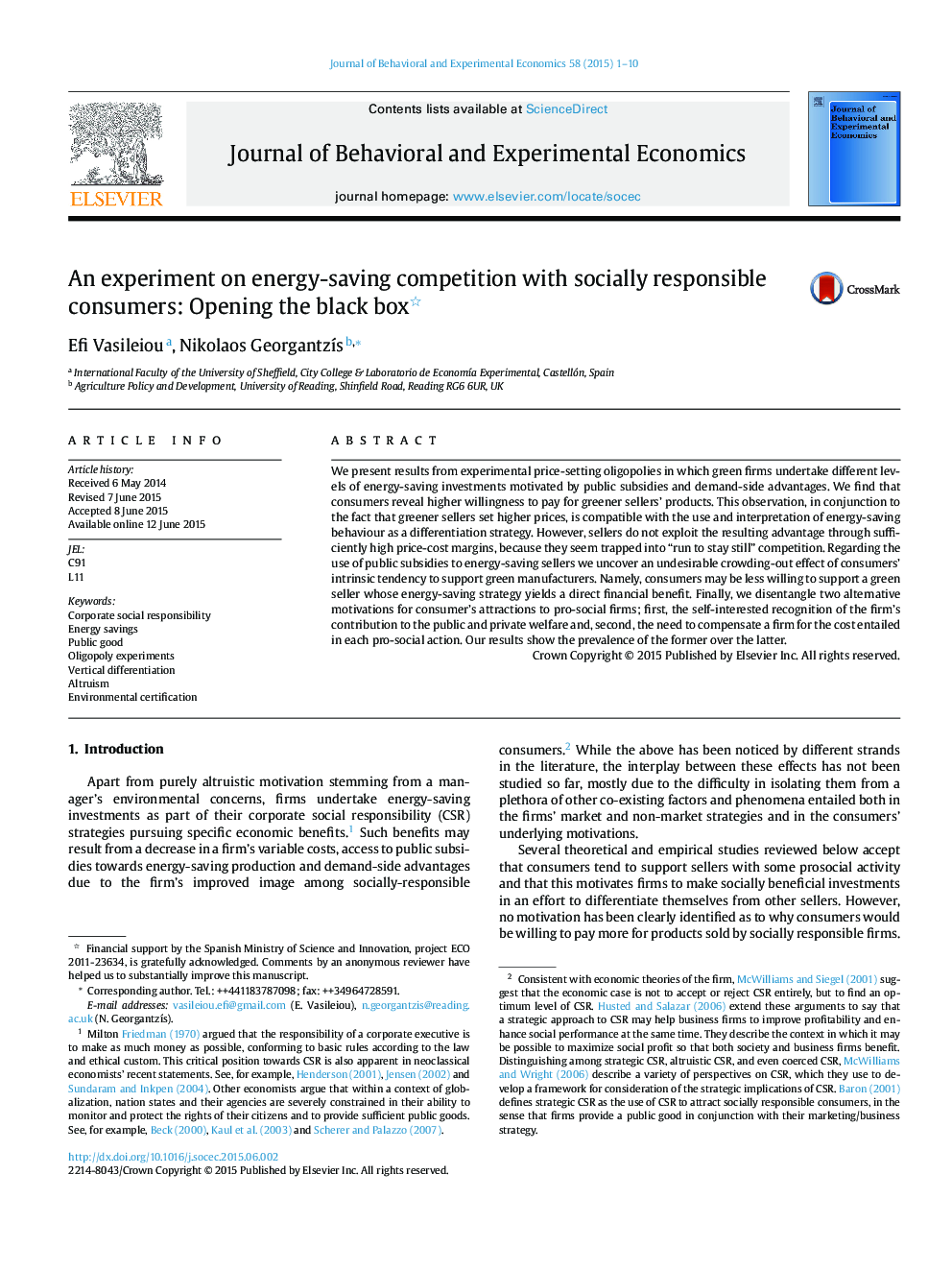| کد مقاله | کد نشریه | سال انتشار | مقاله انگلیسی | نسخه تمام متن |
|---|---|---|---|---|
| 881914 | 1471556 | 2015 | 10 صفحه PDF | دانلود رایگان |
• Firms may undertake costly contributions to a socially beneficial objective in order to gain the consumers’ support and differentiate from other firms in the market.
• Consumers will generally be willing to pay more for products of firms investing more on the social benefit.
• This will lead to price increases through the emergence of perceived product differentiation.
• Despite the increase in prices, profits fall often below zero, making ex post altruistic the initially profit-oriented investments.
We present results from experimental price-setting oligopolies in which green firms undertake different levels of energy-saving investments motivated by public subsidies and demand-side advantages. We find that consumers reveal higher willingness to pay for greener sellers’ products. This observation, in conjunction to the fact that greener sellers set higher prices, is compatible with the use and interpretation of energy-saving behaviour as a differentiation strategy. However, sellers do not exploit the resulting advantage through sufficiently high price-cost margins, because they seem trapped into “run to stay still” competition. Regarding the use of public subsidies to energy-saving sellers we uncover an undesirable crowding-out effect of consumers’ intrinsic tendency to support green manufacturers. Namely, consumers may be less willing to support a green seller whose energy-saving strategy yields a direct financial benefit. Finally, we disentangle two alternative motivations for consumer's attractions to pro-social firms; first, the self-interested recognition of the firm's contribution to the public and private welfare and, second, the need to compensate a firm for the cost entailed in each pro-social action. Our results show the prevalence of the former over the latter.
Journal: Journal of Behavioral and Experimental Economics - Volume 58, October 2015, Pages 1–10
